44 North Coffee grows beyond roasting facility with new cafe in Stonington
 Photo / Dave Clough
Melissa Raftery, left, and Megan Wood, owners of 44 North Coffee, with their Diedrich roaster. The partners invested $12,000 of their own money to start the company.
Photo / Dave Clough
Melissa Raftery, left, and Megan Wood, owners of 44 North Coffee, with their Diedrich roaster. The partners invested $12,000 of their own money to start the company.
When Melissa Raftery and Megan Wood decided to start a year-round coffee business on Deer Isle, they took a magazine article's advice and sat at the location they were contemplating, counted the number of people who walked by and figured 10% would be potential customers.
“One person walked by on her way to the post office and then on her way back,” laughs Wood, 30, a Deer Isle native. “We realized we'd need an alternative business model. That's when we decided we'd source the green beans and roast them. We knew just serving coffee at this café [in Deer Isle] wouldn't pay the bills.”
Thus was born 44 North Coffee, named after the latitude of the company's roasting facility and first coffee shop. The company, founded in 2010, roasts 100% Arabica coffee beans in what once was the principal's office of a former schoolhouse. The co-owners buy green beans through a fair trade cooperative, and 44 North Coffee is certified organic by the Maine Organic Farmers and Gardeners Association.
Wood and Raftery, 34, sell their roasted beans wholesale, direct, via the web, at farmers markets, and they just opened their second café in downtown Stonington.
They recently talked with Mainebiz about what makes a great cup of coffee. The edited transcript follows.
Mainebiz: How did the company get started?
Megan Wood: I moved home seven years ago to find a way to make a living here, which is difficult on an island that is primarily a fishing industry, a school system and hospitality. We realized we needed to create our own business to make a livelihood year round. I studied U.S. foreign policy in Latin America. It surprisingly has helped out a lot.
Melissa Raftery: I'm from Cincinnati, Ohio, and moved to Maine to be a whitewater rafting guide. We met at Guyot Designs, an outdoor products shop next door. Megan and I were ordering beans from around the United States for our own pleasures. We'd taste the coffee and talk about the descriptor notes.
MB: How are you financed?
MR: Megan and I each put in $6,000, and two years after we started we got $8,000 from the Libra Future Fund for a larger roaster. We have funded primarily through internal cash flow.
MB: Do you plan to add employees as you grow?
MR: In the next 3 to 5 years we'd like to add another year-round, full-time employee in the roasting department. Our sales have grown 20% to 55% every year since we opened in December 2010, and we have been profitable since year one.
MB: Why is fair trade sourcing important?
MW: Ideally, we would like to meet each farmer person-to-person and tie their community as growers to our community as roasters and coffee lovers, but we don't have the ability to travel to 12 different countries a year.
MR: For every contract with farmer producers, there is a fair trade certifying system, so there is traceability.
MB: What coffees do you buy?
MW: We get coffee that is seasonally ripe country-by-country and roast it, which lets you contrast coffees and taste the subtle differences between a high-altitude Ethiopian and a coffee from Sumatra. Some of our most popular are Great Ethiopian from the Yirgacheffe region, and our signature blend, Royal Tar, which is two dark beans and a light bean.
MB: What is the sales breakdown by channel?
MW: We sell 40% direct, retail and through our two shops and farmers markets; 50% wholesale to restaurants and food co-ops; and 10% via the web.
MB: What's the key to making a great cup of coffee?
MR: The quality of the water, the grind type and size — grind it within one minute before you brew it — and the freshness of the coffee are the three pillars. Bring the water to a rolling boil and let it sit for 30 seconds. We use pour-over methods including a Beehouse ceramic dripper, French press and Aero press at the coffee shops.
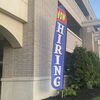
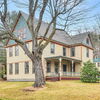
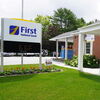
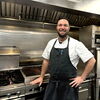
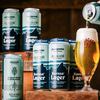
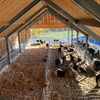




Comments